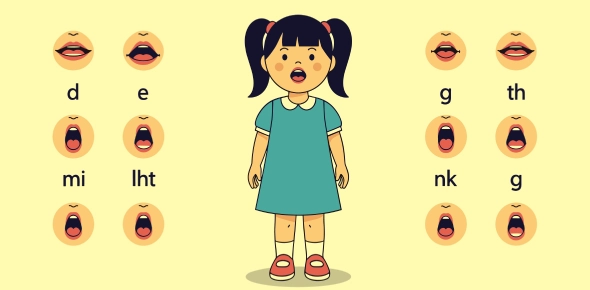Linguistics: Understanding Language, Structures, and Communication
Lesson Overview
Language shapes how we connect, think, and express ourselves. This linguistics lesson explores the structure, function, and meaning of language in communication-unpacking how we speak, understand, and interact across diverse cultures, contexts, and forms of human expression.
What Is Linguistics?
Linguistics is like being a language detective. It's about studying how languages work and how we use them to talk to each other. Linguists look at sounds, words, grammar rules, and how languages change over time. Understanding linguistics helps us communicate better, appreciate different cultures, and learn how languages shape our world.
Examples and Effective Exercises
Here are some activities to better understand linguistics
- Sound Identification: Listen to and identify different speech sounds (phonetics).
- Word Formation: Break down words into morphemes and understand their meanings (morphology).
- Sentence Construction: Create sentences using different syntactic rules (syntax).
- Meaning Analysis: Discuss the meaning of words and sentences in different contexts (semantics and pragmatics).
- Contextual Language Use: Role-play conversations in different social settings to see how meaning changes (pragmatics).
Take This Quiz
What Are the Branches of Linguistics?
Linguistics, the study of language, has different branches that focus on various aspects of how languages work and are used.
- Phonetics
This branch focuses on the sounds of language. Phoneticians study how the sounds are made, like the difference between "p" and "b," and how they're used in different languages. - Syntax
Syntax is like the grammar police of language. It studies how words are put together to form sentences. It's all about the rules that tell us where words should go to make sense. - Semantics
Semantics is about the meaning of words and sentences. It looks at how words can have different meanings in different contexts and how we understand what someone is saying. - Pragmatics
Pragmatics is about the practical use of language. It studies how we use language in everyday situations to get things done or to be polite. - Historical Linguistics
This branch explores how languages change over time. Linguists in this field trace back how languages evolved from ancient times to what we speak today.
Take This Quiz
What Are the Building Blocks of Linguistics?
Linguistics, the study of language, has key building blocks that help us understand how languages work and how we use them to communicate.
- Phonetics
Phonetics focuses on the sounds of language-how we make and hear sounds like "p," "b," or "s." - Phonology
Phonology studies how sounds are organized and used in languages, such as why some sounds are used more in one language than another. - Morphology
Morphology looks at how words are formed and structured. It's like understanding how words are built from smaller parts, such as "play" + "er" = "player." - Syntax
Syntax is about how words are put together to form sentences. It involves the rules of grammar that help us make sense when we talk. - Semantics
Semantics is all about the meaning of words and sentences. It's about understanding why "big" means large and "small" means tiny. - Pragmatics
Pragmatics focuses on how language is used in different situations. It includes knowing when to say "please" and "thank you" or how to ask for something politely.
Take This Quiz
What Are the Rules That Govern Language?
Language, like any system, follows rules that help us communicate effectively. These rules are essential for understanding how languages work and why they're structured the way they are.
- Phonological Rules
These rules govern how sounds are used in a particular language. They dictate which sounds are used, how they can be combined, and how they change in different contexts (like pronunciation). - Morphological Rules
Morphological rules govern how words are formed from smaller units called morphemes. They define how prefixes, suffixes, and roots combine to create words and convey meaning (like "un-" + "happy" = "unhappy"). - Syntactic Rules
Syntactic rules determine how words are ordered to form grammatically correct sentences. They specify the structure and arrangement of words, ensuring clarity and meaning in communication. - Semantic Rules
Semantic rules govern the meaning of words and how they combine to form meaningful sentences. They clarify the relationship between words and their intended meanings in different contexts. - Pragmatic Rules
Pragmatic rules govern how language is used in social contexts to achieve specific communicative goals. They include rules for politeness, turn-taking in conversations, and adapting language based on the listener's knowledge.
Take These Quizzes
Conclusion
In this linguistics lesson, we explored how language works, its building blocks, and its various branches. From understanding sounds and word structures to examining how language evolves and influences society, we see that linguistics is crucial in many fields.
By studying linguistics, we gain insights into effective communication and cultural diversity. This knowledge is vital for educators, translators, and anyone interested in the intricacies of language. Understanding linguistics is essential for navigating our complex, interconnected world.
Rate this lesson:
 Back to top
Back to top


(547).jpg)
(260).webp)

(202).jpg)